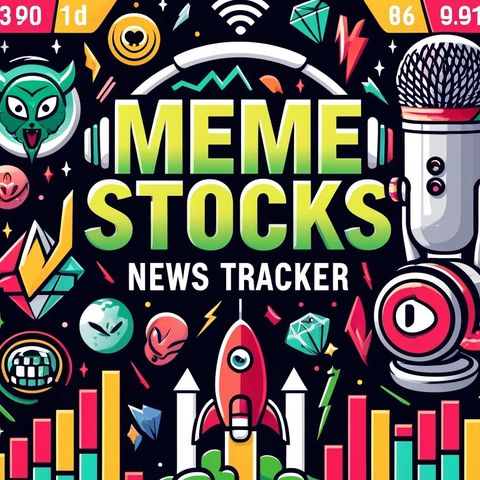Meme Stocks: The Rise of Retail Investor Influence in the Stock Market

Download and listen anywhere
Download your favorite episodes and enjoy them, wherever you are! Sign up or log in now to access offline listening.
Description
Meme stocks gained prominent recognition during the stock market craze in early 2021, with GameStop being the most visible example. Such stocks typically see their value skyrocket not because of...
show moreGameStop, previously a struggling brick-and-mortar video game retailer, unexpectedly found itself at the center of this phenomenon. This was largely fueled by users from the subreddit r/wallstreetbets, who aggressively bought shares and options, causing the stock's price to rise significantly in a short period. This sudden spike not only squeezed short-selling hedge funds who had bet against the stock but also highlighted a new form of individual-investor-driven market influence.
One pivotal figure during the GameStop saga was an investor known online as 'Roaring Kitty.' His real name is Keith Gill, and he played a key role by frequently sharing his investment positions on YouTube and Reddit, showcasing a significant stake in GameStop. His enthusiasm and detailed analysis helped motivate a legion of retail investors to follow suit.
Similarly, Michael Burry, famed for his prediction of the 2008 financial crisis and his depiction in the movie "The Big Short," also revealed an early interest in GameShop stocks. He sent letters to GameStop's directors outlining potential strategies for the company, more than a year before the stock became a meme stock celebrity. Burry's involvement added a layer of legitimacy to the speculative frenzy that was mostly driven by amateur investors.
Moreover, the meme stock trend was not confined to GameStop alone. Other companies, like AMC Entertainment, also experienced similar windfalls, with their stock prices driven by speculative trading fueled by social media hype. However, analysts have often warned about the sustainability of such investments, pointing out that these stocks' prices could be significantly at odds with their underlying business fundamentals.
Beyond individual stocks, the meme stock phenomenon has broader implications. For instance, it has forced Wall Street to reckon with the rising influence of retail investors and the impact of social media on stock market dynamics. It has also sparked discussions about market regulation and the democratization of investing, with groups like the U.S. Securities and Exchange Commission taking an interest in the subject.
While some analysts suggest that meme stocks represent a temporary disruption in an otherwise efficient market, the GameStop episode undeniably showcased the financial potency and market-moving potential of coordinated actions by retail traders. Whether this represents a new normal or an ephemeral anomaly in stock market dynamics remains a subject of ongoing debate and analysis.
Information
| Author | QP-4 |
| Organization | William Corbin |
| Website | - |
| Tags |
Copyright 2024 - Spreaker Inc. an iHeartMedia Company

Comments